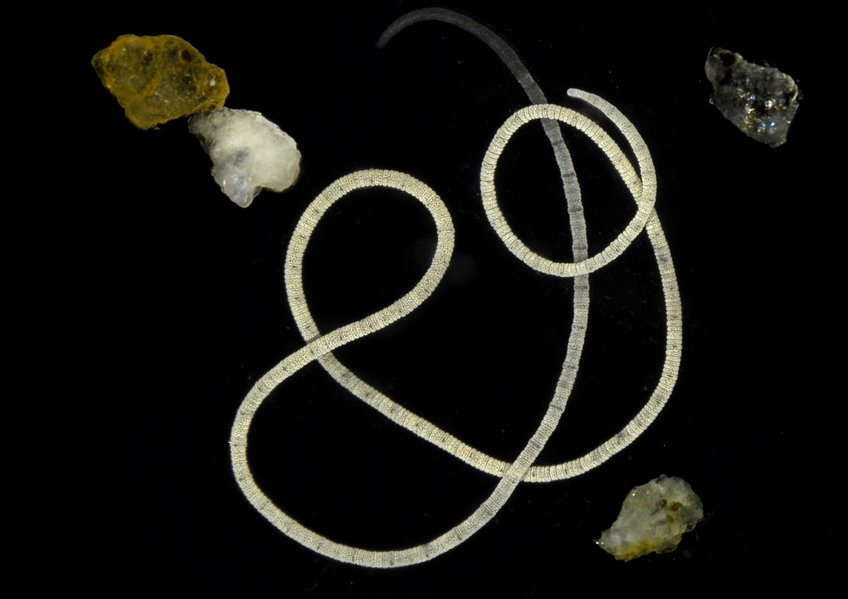2023-05-04 マックス・プランク研究所

The gutless marine worm Olavius algarvensis under the microscope. It is about two centimeters long and only 0.5 milimeters wide, and lives in between the sand grains (shown on photo) next to seagrass beds in the Mediterranean Sea. © MPI f. Marine Microbiology/ Rebekka Jahnke
◆ドイツのマックスプランク海洋微生物研究所の研究者たちは、多くの動物が植物ステロールを生成する遺伝子を持っていることを発見した。
◆研究は、地中海の小さな腸のない海洋ワームOlavius algarvensisが自己でフィトステロールを合成できることを示し、またフィトステロールが動物の膜をより浸透性にする可能性があることを示唆している。これは、植物ステロールが動物の健康や幸福における役割を理解するための貴重なモデル生物であると考えられる。
<関連情報>
- https://www.mpg.de/20249739/0502-mbio-gutless-marine-worms-on-a-mediterranean-diet-animals-can-synthesize-phytosterols-154772-x?c=2249
- https://www.science.org/doi/10.1126/science.add7830
動物におけるデノボフィトステロール合成。 De novo phytosterol synthesis in animals.
Dolma Michellod,Tanja Bien,Daniel Birgel,Marlene Violette,Manuel Kleiner,Sarah Fearn,Caroline Zeidler, Harald R. Gruber-Vodicka,Nicole Dubilier and Manuel Liebeke
Science Published:4 May 2023
DOI:https://doi.org/10.1126/science.add7830
Editor’s summary
For most animals, cholesterol is an essential membrane lipid and signaling molecule. Plants and fungi use chemically similar molecules with one or two additional carbon atoms. Michellod et al. studied two species of gutless marine annelids and found that they produced sitosterol, a common plant lipid, as the main sterol in their lipid membranes (see the Perspective by Brocks and Bobrovskiy). A noncanonical methyltransferase that is known in plants but not previously known in bilaterian animals appears to be key in generating this sterol. Additional analyses of genomic and transcriptomic data from annelids and several other animal phyla demonstrated that this biosynthesis gene is widespread and has a complex evolutionary history. —Michael A. Funk
Abstract
Sterols are vital for nearly all eukaryotes. Their distribution differs in plants and animals, with phytosterols commonly found in plants whereas most animals are dominated by cholesterol. We show that sitosterol, a common sterol of plants, is the most abundant sterol in gutless marine annelids. Using multiomics, metabolite imaging, heterologous gene expression, and enzyme assays, we show that these animals synthesize sitosterol de novo using a noncanonical C-24 sterol methyltransferase (C24-SMT). This enzyme is essential for sitosterol synthesis in plants, but not known from most bilaterian animals. Our phylogenetic analyses revealed that C24-SMTs are present in representatives of at least five animal phyla, indicating that the synthesis of sterols common to plants is more widespread in animals than currently known.


